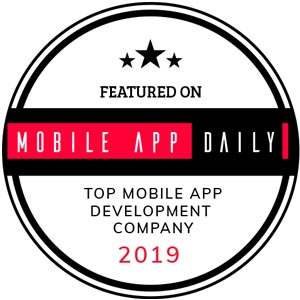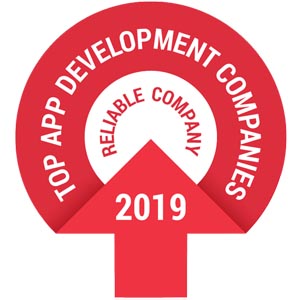If you’re planning to make a mobile app, maybe you’ve heard about or even begun considering the advantages and disadvantages presented by web app vs native app vs hybrid app development. Whether you’re familiar with these terms, or just hearing them for the first time, it can be valuable to review the pros and cons of each approach. But first, let’s review the distinction between these three types of application.
What is a Web App?
Web applications offer the most universal app solution, allowing access to a large user base. Rather than requiring the user to download an app to their device, web apps are run directly in a browser like Chrome or Safari, which is likely already installed. Web apps are coded in languages like HTML5, CSS, and Javascript. Benefits of Custom Web Application Development.
What is a Native App?
A native application is one that is developed with a specific platform in mind. Users typically download them through their mobile platform’s app store, and run them from their device’s memory. The language in which they are coded is dependent on the platform, such as iOS or Android.
What is a Hybrid App?
As the name suggests, a hybrid app combines aspects of web and native apps. Hybrid apps run in a virtual machine, or shell, that can easily be compiled to run on different platforms. Hybrid apps are coded in the same languages as web apps and then packaged in an application that interprets the code to run natively on a device. Like native apps, hybrid apps are usually downloaded from the app store.
Advantages and Disadvantages of Web App vs Native App vs Hybrid App Development
At Split Reef, our team of experts can guide you in the right direction if you’re unsure which type of application works best for your business. But here are some strengths and weaknesses to keep in mind as you decide for yourself.
Web Applications
Choosing a web app can be a great way to give wide access to your application because all the user needs is a compatible web browser. Since users access the app via a website, you can be sure they are always using the latest version (and your users may be happy they don’t have to worry as much about keeping up with downloading updates). Cloud based vs web based app.
Depending on the complexity of your application, development can be straightforward, and it may even be possible to find code templates to meet many of your needs. A web app has the potential to be the fastest way to get your application into as many hands as possible, especially if it is simple in nature.
However, this universal appeal may come at the cost of performance. By their nature and necessity, web apps don’t excel at taking advantage of the hardware. If you plan on your application making use of a graphics-intensive interface, or platform-specific features, perhaps a different approach will work better.
Native Applications
While web apps let the browser do the heavy lifting, native apps are built from the ground up to take advantage of platform-specific features, working in tandem with native hardware and software. This gives you the most freedom to develop exactly the app you want.
However, with greater performance comes the potential cost of the available user base. For example, if you want your application to run on Android and iPhone devices, you will need to develop and maintain separate code bases for Android, iOS, and any other platform you wish to support.
Developing for specific platforms also takes a specific knowledge base that may be harder to come by. Native app developers need to understand more complicated languages, making this approach more difficult and expensive. Despite the boost in potential app performance, it may be overkill if your problem just needs a simple solution.
Hybrid Applications
Hybrid apps make use of a single code base to run in multiple environments, making it easier to maintain an application that can make better use of processing power and other features. Modifications can allow your application to utilize platform-specific features, but make the code more complex and error-prone. So, for more complex applications, a native app may end up being the better choice.
In the end, the type of app development you choose likely comes down to three factors:
- Budget/time constraints
- Scope of the application
- User experience
For applications that require speed and robust features, native apps offer the most competent solution but may be more difficult and expensive to develop. Hybrid apps help bridge this divide, but if you need to add too many platform-specific features, code may be more difficult to maintain and upkeep. Web apps work great for simple needs, but slow performance may frustrate users.
It’s important to consider the needs of your application, as well as your target user base to decide whether a hybrid, native, or web app would best meet your goals. For help determining the best choice for you, or for development assistance, contact Split Reef online or by phone at (614) 721-2854.

Split Reef is a modern, results-driven digital organization always ready to support clients in their search for digital supremacy. With Split Reef, your budget isn’t going to hold you back from partnering with us to make your project successful. Our offices are located in Columbus, Ohio and Jacksonville, Florida.











Can you do push notifications on iOS using the Hybrid app approach?
Push notifications are possible on an hybrid applications, but a lot depends on what kind of framework is the application developed. It’s always recommended to use a professional organization for developing an application, so that all the functionalities are working seamlessly. In case you have issues with your current mobile application, we would love to discuss the details with you, please connect here –> https://www.splitreef.com/get-a-quote.php
Thanks for sharing this great information, such as a great article and valuable thoughts about Hybrid app Development.
Great article :).Confused which platform to choose for your mobile app, native or hybrid? Check out pros and cons of native and hybrid platform for your mobile app.